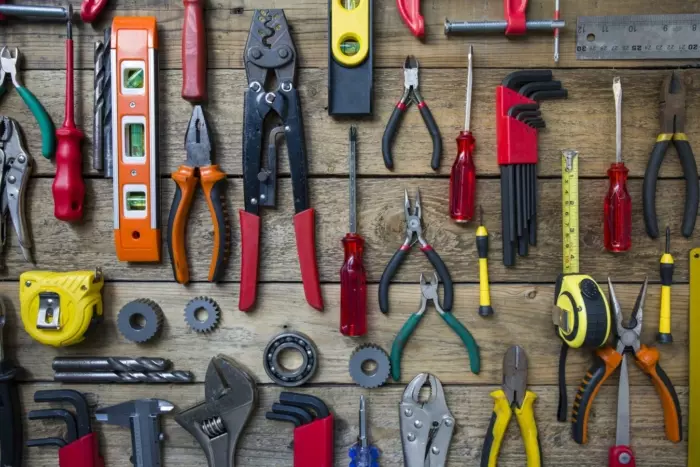Plumbing is a specialized trade, and you need the right tools for the job. A good plumbing toolbox should contain several tools, but here are just a few of the most essential. Pipe cutters are essential to properly cut pipes. The best ones are made of polytetrafluoroethylene, which helps seal pipe threads and prevent leaks. Hack saws are also useful for cutting pipes of various sizes. You can use them to cut pipes made of plastic or metal. A metal file is an ideal tool to use to clean the pipe edges.
Tongue and groove pliers are general tools for fixing leaks. They have wide jaws for grabbing objects and long handles for turning. Plumber’s putty and tape are also useful tools. They can be used to seal threaded joints, or to create a watertight seal. A metal file can also be used to smooth cut pipe. There are two types of pliers: a half-round file and a round file.
Borescopes are a must for professionals. Although it may cost a small investment, a borescope is invaluable for many plumbing jobs. This small camera is tethered to a flexible cable that is inserted into a pipe. Borescopes come with a variety of features, including Bluetooth connectivity. You can even buy one that connects to a smartphone, which makes it easy to access and use.
While there is no definitive list of essential plumbing tools, a plumber should be prepared for a variety of plumbing emergencies. A well-stocked toolbox can save you a lot of money on plumbing costs and avoid hiring a professional to do the work for you. It’s also important to keep in mind that plumbing emergencies are inevitable, and the right tools are essential to keep them under control. And while some plumbing issues are easy to fix with a bit of elbow grease, there are a few more tools that can help you solve these problems.
Another essential plumbing tool is a plunger. These tools are essential for removing clogs from pipes and drains. This tool can clear clogged pipes and is useful for removing obstructions from shower heads. For those who are handy with tools, a power drill is an essential tool to keep in your toolbox. A power drill is also handy for driving screws. A 90-degree drill is especially helpful for drilling holes between studs.
While strap wrenches may not be essential plumbing tools, they can be invaluable in many situations. If you are dealing with leaking faucets or pipes, the Channellock pliers can grip them securely without scratching the surface. These pliers can even hold a pipe section while soldering. An adjustable wrench is another useful tool, and it will help you adjust nuts and fittings while leaving you free to solder. A basin wrench can reach nuts under the sink or under the tub. It also helps you tighten tailpiece assemblies in tubs.
A large wrench is also an essential plumbing tool. However, a small wrench can be equally useful if you need to reach tight spaces, such as under sinks. Also, keep an adjustable wrench in your toolbox for tightening nuts and bolts. If you don’t have a large wrench, you might need to buy a hex wrench instead. Alternatively, a plumber can use a combination of the two.


